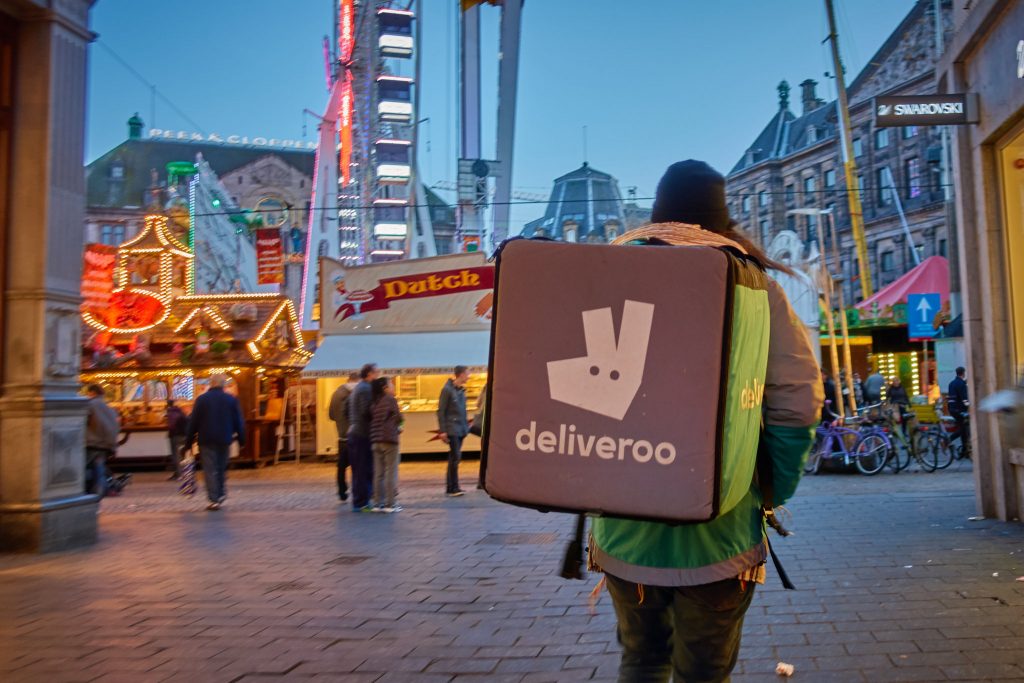A new Government report on modern employment practices has urged for “fair and decent” work for all – even if they’re part of the “gig economy”.
The Taylor Review, commissioned by Prime Minister Theresa May back in November last year, has come up with several recommendations to improve employment for people working in the UK.
This is made up of seven key points, which it says the Government needs to be “held accountable” for. It all came about after the come about after the controversy surrounding the “gig-economy” and the employment rights of its workers.
I need a recap, what’s the gig economy again?

Image Credit: Eugenity / Flicker
If you’ve ever taken a ride in an Uber, ordered takeaway from Deliveroo, or opted for Airbnb accommodation when traveling, then you’ve engaged with the “gig economy”.
Essentially, it’s where workers take on various part-time jobs and usually sell their labour through apps. Currently there are an estimated 1.3 million people working in the gig economy.
Well, what’s this got to do with our rights?
 Image Credit: CreateHerStock
Image Credit: CreateHerStock
Employment rights are a key part of human rights. They protect workers from such things as discrimination, unsafe working conditions, and exploitation. But there are different levels of rights afforded to people depending on their employment status.
An employee is entitled to the full array of employment rights, including the national living wage, annual leave and national insurance contributions. Someone who is self-employed isn’t. But they are entitled to the basic health and safety standards and non-discrimination.
In October 2016, an Employment Tribunal found that Uber was breaching its drivers’ rights. While Uber claimed that its drivers were considered “self-employed” and that it only acted as link between them and their customers, the tribunal found that the drivers were in fact workers and therefore entitled to employment law benefits, which they were being denied.
People working for such organisations as Uber experience heightened job insecurity, an inability to actually turn down work, and a wage that averages much below the minimum wage. There is additional controversy over the fact that this system undermines the government’s tax base because people who are self-employed pay lower taxes.
Whats in Taylors report then?

Image Credit: Ewan McIntosh / Flickr
The report recognises the often one-sided and unfair flexibility for workers employed in the gig economy and suggests for greater protections for this group, which the report suggests should be categorised as “dependent contractors”.
In his push for fair and decent work for all, Taylor says the determinant factor for people who sit in this grey zone for employment rights is whether they are being “controlled and supervised” – if the answer is yes, then they should be getting worker’s rights. Taylor suggests legislation to add clarity to the matter.
The report aims to address the benefits of flexible working and zero-hours contracts, while striving for greater worker protections. It also suggests a free process whereby unsure workers can seek advice on what rights they have as an employee – or not – without having to go to a tribunal.
Other recommendations for the UK government including government accountability for decent work for all, basic principles that apply to all forms of employment in the British economy, and consistent taxation across employment forms.
Okay then, how’s it all gone down?
Image Credit: Giphy
There has been a mix of responses from businesses, trade unions and government. Arguments supporting the report think it finds the right balance, but some say it doesn’t go far enough.
The PM has agreed with the report echoing a need to stay flexible while ensuring employers do not use exploitative practices. However, until legislation backs up these recommendations, there is very little workers can do if they find themselves suddenly “self-employed” and with very little rights.
Empower yourself and learn more about workers’ rights! Here’s a starter:
- See this explainer on the key rights that protect you at work
- Take a look at what surviellance means in the workplace







